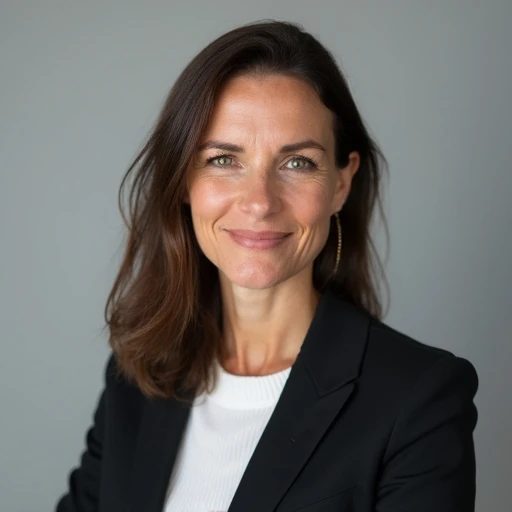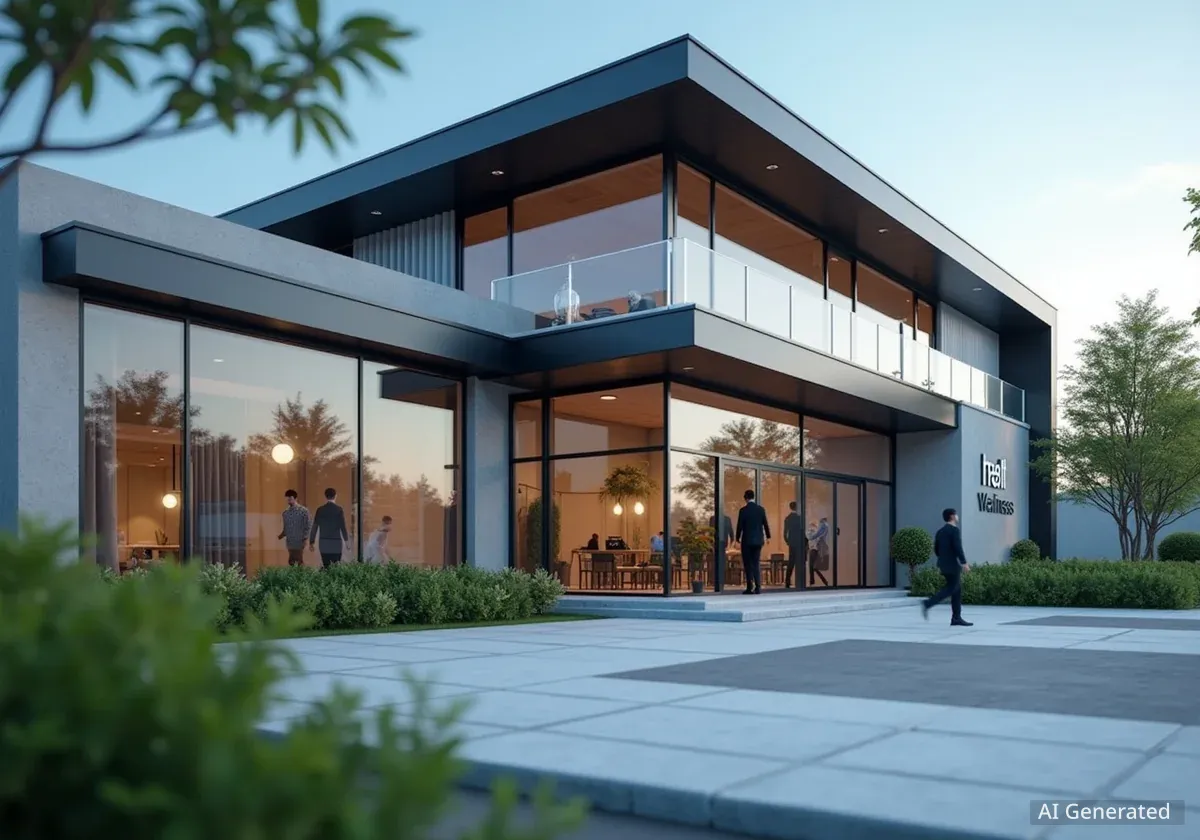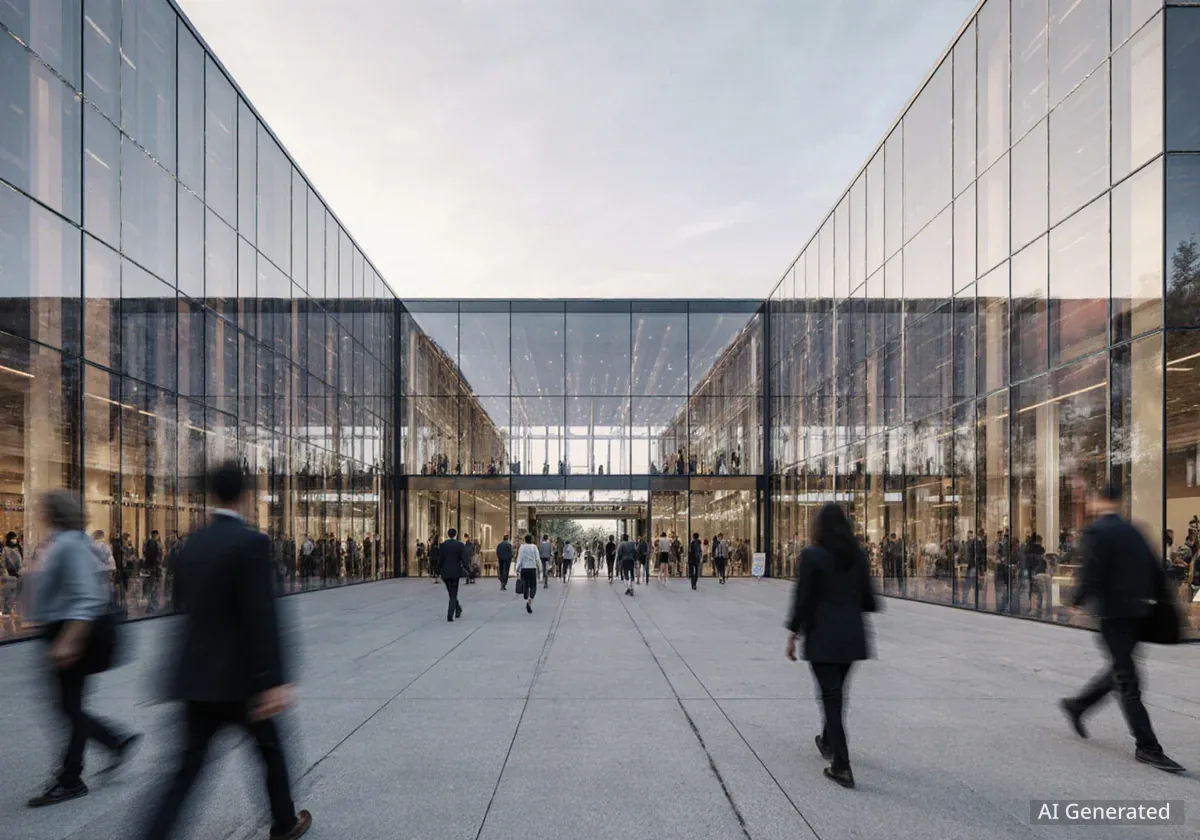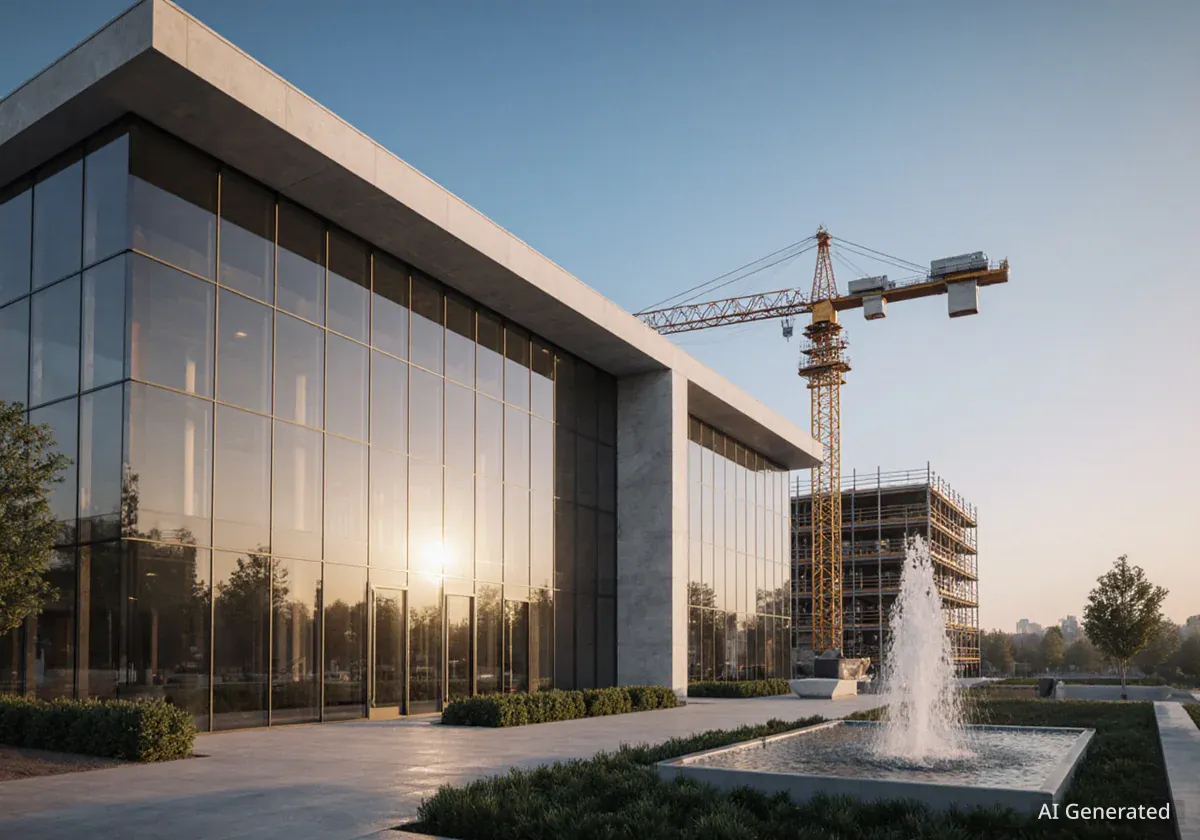David Lloyd Leisure, one of Europe's leading health and wellness groups, has announced a significant expansion of its club portfolio, with several new sites opening across the UK and mainland Europe. This multi-million-pound investment underscores the company's strategy to capitalize on the growing demand for premium family-oriented health and racquets clubs.
The expansion includes the recent launch of a flagship club in Bicester, Oxfordshire, and the acquisition of new locations in Spain and Italy, reinforcing its position as a dominant player in the European leisure market. The company reports that these new facilities are part of a broader growth plan aimed at modernizing existing clubs and entering new territories.
Key Takeaways
- David Lloyd Leisure is investing over £100 million in new club openings and refurbishments across Europe.
- New flagship clubs have recently opened in Bicester (UK) and Madrid (Spain), with more planned for 2025.
- The expansion focuses on premium, family-friendly facilities, including spas, outdoor pools, and dedicated children's areas.
- The company's growth reflects a strong post-pandemic consumer trend towards health, wellness, and community-based activities.
Strategic Growth in Key Markets
David Lloyd Leisure's current expansion phase is strategically focused on affluent suburban areas and major European cities where demand for high-quality wellness facilities is high. The company's model, which combines fitness, relaxation, and family activities, has proven resilient and popular, driving its confidence in further investment.
The new club in Bicester, UK, represents a £15 million investment and has created over 80 local jobs. Situated near the popular Bicester Village retail park, the club is designed to attract families and professionals from the surrounding area. Similarly, the group's recent acquisition of the La Finca country club in Madrid marks a significant step in its Spanish operations, adding a prestigious golf and wellness resort to its portfolio.
Background on David Lloyd Leisure
Founded in 1982 by former professional tennis player David Lloyd, the company started with a single club in Heston, Middlesex. It has since grown to operate over 130 clubs across nine European countries. The group is now majority-owned by TDR Capital, a private equity firm that has supported its expansion strategy since acquiring it in 2013.
Details of the New Bicester Facility
The Bicester club spans over 10,000 square meters and offers a comprehensive range of amenities. These facilities are central to the David Lloyd brand promise of providing an all-encompassing leisure experience.
- Fitness and Gym: A state-of-the-art gym with the latest equipment from brands like Technogym and Life Fitness.
- Swimming Pools: A 25-meter indoor pool and a 20-meter heated outdoor pool, both available year-round.
- Racquet Sports: Multiple indoor and outdoor tennis courts, as well as badminton and squash courts. The club also features newly popular Padel tennis courts.
- Spa Facilities: An extensive Spa Garden with a hydro pool, sauna, steam room, and relaxation zones.
- Family Areas: A dedicated DL Kids area with activity rooms and a soft-play frame, along with a family-friendly Clubroom for dining.
Investment and Financial Outlook
The group's expansion is backed by robust financial performance. According to recent company statements, David Lloyd Leisure has seen membership numbers return to and exceed pre-pandemic levels. This recovery has fueled an aggressive capital expenditure program focused on both new builds and the modernization of its existing estate.
"Our continued investment in our clubs and our expansion into new areas is a testament to the strength of our brand and the loyalty of our members. We see a clear and sustained demand for premium wellness experiences that cater to the entire family." - Glenn Earlam, CEO, David Lloyd Leisure.
The company has allocated approximately £100 million for its 2024-2025 growth plan. A significant portion of this is dedicated to enhancing its digital offerings, including the David Lloyd Clubs mobile app, which allows members to book classes, courts, and personal training sessions seamlessly. This digital integration is seen as crucial for retaining a modern, tech-savvy membership base.
By The Numbers: David Lloyd's European Presence
- Total Clubs: 133 (103 in the UK, 30 in mainland Europe)
- Countries of Operation: 9 (UK, Ireland, Spain, Italy, France, Belgium, Netherlands, Germany, Switzerland)
- Total Members: Over 750,000
- Employees: Approximately 8,000
Focus on Wellness and Community
A key driver of David Lloyd's strategy is the shift from being a simple gym to a comprehensive wellness destination. The company has invested heavily in its spa facilities, branding them as 'Spa Retreats' in its premium locations. These areas offer a sanctuary for adults, separate from the more family-focused parts of the club.
This dual focus allows the brand to appeal to a wide demographic. While parents can use the gym or spa, their children can participate in supervised activities or coaching programs. This all-in-one model creates a strong sense of community and increases the average time members spend at a club, which in turn boosts secondary spending on food, beverages, and personal training.
Adapting to Post-Pandemic Trends
The COVID-19 pandemic accelerated public interest in health and well-being. David Lloyd has successfully tapped into this trend by emphasizing not just physical fitness but also mental wellness and social connection. The club's design, with its open-plan Clubrooms and social event calendars, encourages members to interact and build relationships.
Furthermore, the rise of flexible and remote working has changed how people use leisure facilities. More members are now using the clubs during off-peak, weekday hours. David Lloyd has adapted by promoting its Clubrooms as spaces for 'work-from-club,' offering high-speed Wi-Fi and comfortable seating, effectively turning their locations into community hubs.
Future Plans and Market Challenges
Looking ahead, David Lloyd Leisure has identified further growth opportunities in Southern Europe, particularly in Italy and Portugal. The company is actively seeking sites for new-build clubs and is also open to acquiring existing independent clubs that can be refurbished and rebranded.
Despite its strong market position, the company faces challenges. The premium leisure sector is competitive, with boutique fitness studios and budget gyms vying for market share at different price points. Additionally, rising operational costs, particularly for energy to heat large facilities and swimming pools, present an ongoing financial pressure.
However, the company's focus on the premium family segment provides a degree of insulation from these pressures. Its membership model, which often involves long-term commitments and higher fees, attracts a more affluent and less price-sensitive consumer. By continuing to invest in high-quality facilities and a superior member experience, David Lloyd aims to maintain its leadership position in the European health and wellness industry for years to come.





